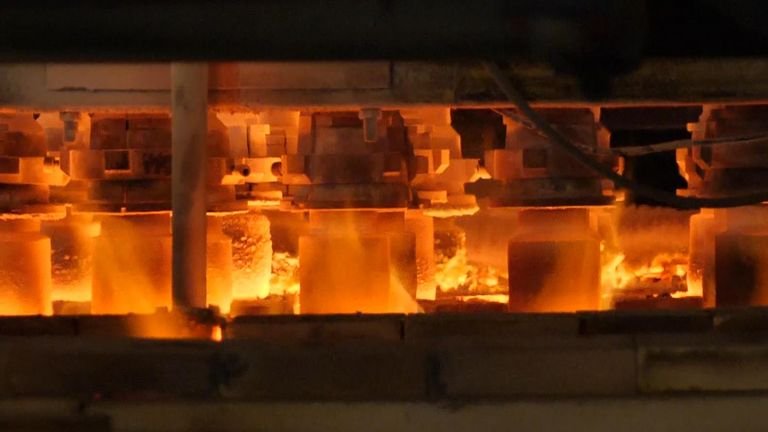If you crack open a bottle of something – be it wine, water or soft drinks – over the festive season, there’s a good chance the glass came from the Encirc factory in Cheshire.
Here, on the banks of the River Mersey, you will find one of the world’s largest glass factories. They take sand from Norfolk, soda ash created from the salt sitting beneath the Cheshire countryside and a lot of recycled glass and throw it into two of the biggest glass furnaces in the world.
There, in the furnace, at temperatures of around 1,600 degrees centigrade, the sand melts and becomes a liquid river of molten glass. It is a chemical reaction humans learnt thousands of years ago, but here at Encirc it’s carried out on a gargantuan scale.
This factory alone produces two billion bottles and containers a year, a number which is hard to process, until you note that it includes around 40% of all the wine bottles consumed in the UK.
That includes a significant proportion of all the New World wines we consume here, by the way. Mostly, the wine from Australia, California and Chile arrives not pre-bottled, but in large bags inside shipping containers, which are then emptied into metal vats at Encirc, from where they are pumped into bottles made here in the UK.
It’s an extraordinary site – a place which says a lot both about our appetite for liquids (both alcoholic and not) and our ability to turn raw materials into sophisticated products.
The struggle to get to net zero
But turning sand into glass is an enormously energy intensive process. Some of the heat in the furnace can be created by electric elements which heat the bottom of this enormous oven. But glassmakers like Encirc say it’s impossible to do what they do – making glass on a vast scale – without blasting that furnace with a very hot flame.
At the moment that flame is produced using methane – natural gas – with the upshot that this glassmaking facility produces rather a lot of carbon dioxide. And even if…
More information about this article Read More
Source: news.sky.com
This notice was published: 2023-12-30 17:00:00

Sky News is a British 24-hour information television channel, the first in Europe of its kind, launched on February 5, 1989 by the British Sky Broadcasting Company.

